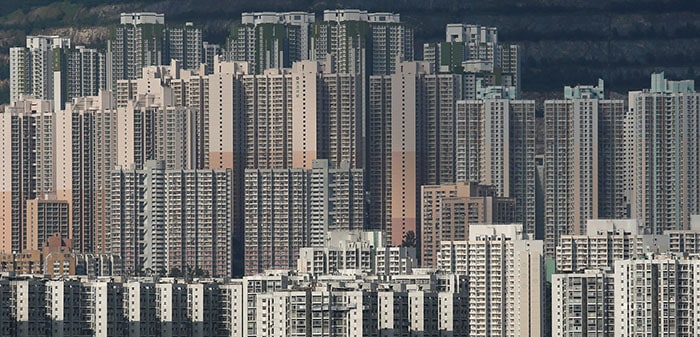
Hong Kong’s housing market is at breaking point
Hong Kong leads the way in Mingtiandi’s roundup of Asia real estate headlines today with the news that falling prices are driving homeowners into negative equity, spelling more trouble ahead for the property market.
In other news around the region, a state-owned conglomerate has bought out Tesco’s remaining 20 percent interest in its China retail JV for $357 million, while a new company rises out of the ashes of a disgraced mainland China insurer.
Elsewhere, the Australian arm of a Shanghai-based property developer is forging ahead with a $329 million office development despite its investment partner pulling out.
Property Crisis Looms as Hong Kong Homeowners Face Negative Equity
Hong Kong’s commercial banks are cutting their valuations of mortgaged homes as they bow to the double whammy impact of a viral epidemic with months of anti-government protests, in a move that could drive even more borrowers into negative equity and provoke panic selling.
The weekly Centa Valuation Index (CVI) compiled by one of the biggest real estate agencies in the city plummeted by 3.52 points to 12.5 last week, the lowest level since January 2019. The lower the reading, the more bearish banks become of prospects in the real estate industry, and the more likely banks they are to cut their valuations of mortgaged property. Read more>>
China Resources Buys Out Tesco China JV for £275M
Britain’s biggest retailer Tesco has completed its exit from China with the £275 million ($357 million) sale of its joint venture stake to state-run partner China Resources Holdings (CRH).
Having struggled to crack the Chinese market, Tesco established the Gain Land venture with CRH in 2014, combining the British group’s 131 stores in China with its partner’s almost 3,000. Read more>>
Dajia Rises From Anbang’s Ashes after Completion of 2-year Takeover
China’s banking and insurance watchdog is in talks to introduce strategic investors into Dajia Insurance Group, the newly created firm that absorbed healthy assets from the troubled conglomerate Anbang Insurance Group.
The regulator “has basically secured social investors” to establish an appropriate shareholding structure for Dajia, just as it ended a two-year takeover of Anbang on Saturday, the China Banking and Insurance Regulatory Commission (CBIRC) said in a statement. Read more>>
Anbang’s Successor Launches Waldorf Astoria Condos Amid NYC Luxury Glut
New York’s closed Waldorf Astoria will re-emerge this week as a condo building, testing whether nostalgia for a cherished landmark can spark high-dollar deals in a market glutted with luxury homes.
The Park Avenue property, a high-society hang-out that counted Frank Sinatra and Marilyn Monroe as tenants, has been getting primed for this moment since 2015. That’s when China’s Anbang Insurance Group bought it for a record $1.95 billion with plans to convert a portion of the 1,400-room hotel into for-sale apartments. Read more>>
Poly to Forge Ahead with A$500M Sydney Office Project Despite Investor Pulling Out
Chinese developer Poly is confident it has the fiscal muscle to go it alone on a A$500 million-plus ($329 million) office development at Sydney’s Circular Quay after ASX-listed GPT Group walked away from a mooted investment in the project.
GPT and its unlisted office fund had been carefully weighing a half stake – worth between A$260 and A$270 million – in the George Street project. In recent weeks, their investment committees ultimately declined to proceed, according to senior sources. Read more>>
Frasers Property Offers Virus Relief to Singapore Mall Tenants
Tenants at 14 malls across Singapore will receive support from Frasers Property Retail (FRP) to tide over the business impact of the novel coronavirus outbreak.
These malls include Causeway Point, Bedok Point, The Centrepoint, Eastpoint Mall, Northpoint City, Waterway Point, Anchorpoint, Century Square, Hougang Mall, Tiong Bahru Plaza, Tampines 1 and White Sands. Read more>>
BHG Retail REIT Q4 DPU Slips 14.7%
BHG Retail REIT’S fourth quarter distribution per unit (DPU) fell 14.7 percent to 0.93 Singapore cents (0.67 US cents) from 1.09 cents a year ago.
The lower DPU was due to an increase in the number of units entitled to distribution, as well as the payment of management fees in units in lieu of cash, the manager of the pure-play China real estate investment trust said. Read more>>
Tune in again tomorrow for more news, and be sure to follow @Mingtiandi on Twitter, or bookmark Mingtiandi’s LinkedIn page for headlines as they happen.
Leave a Reply